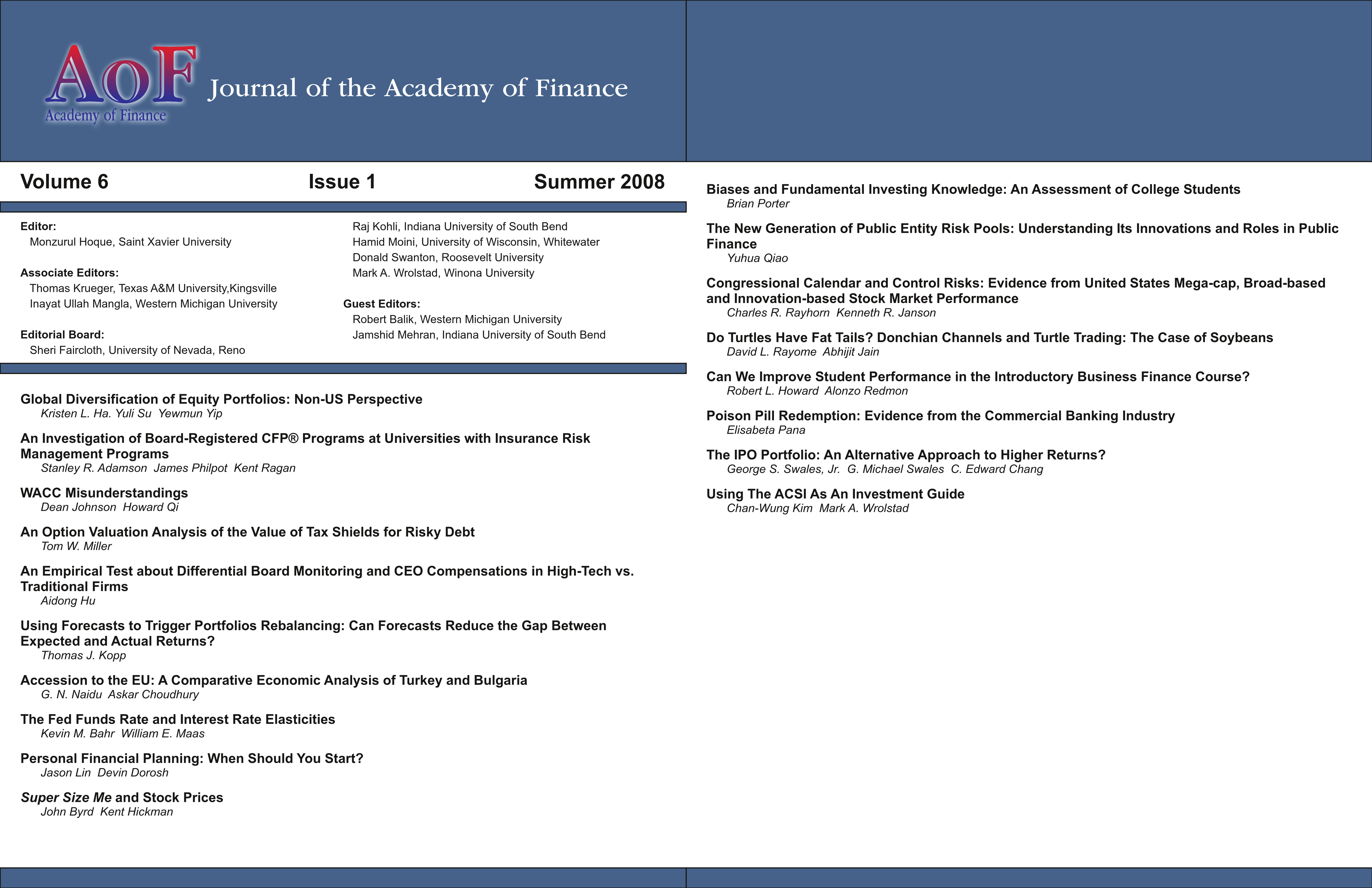An Empirical Test about Differential Board Monitoring and CEO Compensations in High-Tech vs. Traditional Firms
DOI:
https://doi.org/10.58886/jfi.v6i1.2430Abstract
I examine how firm characteristics and CEO compensation contract affect the independent board monitoring activities between high-tech and traditional firms. Corporate board monitoring activities are measured by annual board meetings, and the propensity to hold board meetings is significantly and positively associated with the size of the firm and is significantly and negatively associated with Return on Equity (ROE) as predicted by corporate governance under managerial entrenchment hypothesis. Using data on 1,735 corporations during 1992-2000, I find evidence that high-tech firms use different compensation plans to motive CEOs and exhibit different attributes from those of traditional firms. CEOs in both high-tech and traditional firms who have long tenure, high level of cash compensation are less likely to hold frequent board meetings. However, the existence of executive stock options and CEO long-term incentive plan may increase the frequency of board meetings. My model performs well in predicting number of board meetings for high-tech and traditional firms using out-of-sample period of year 2001 and 2002. My results extend and refine the growing literature on the relation of executive compensation, board activities
and corporate governance.





